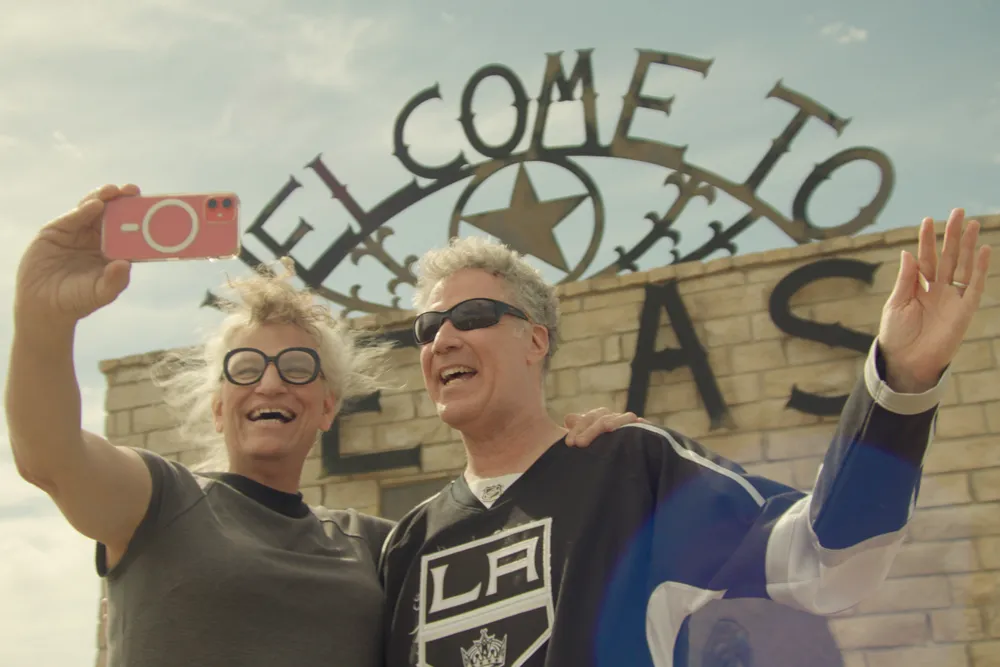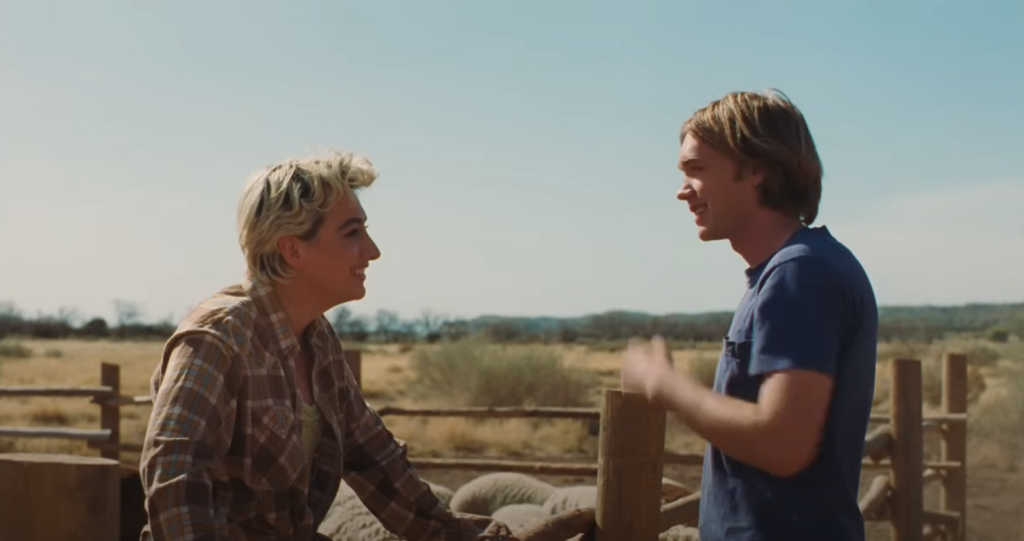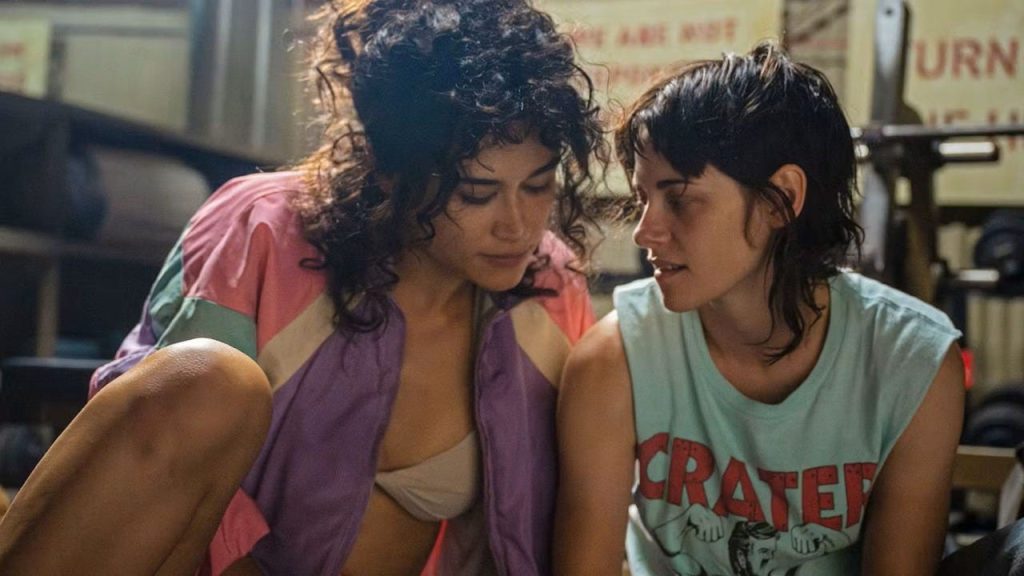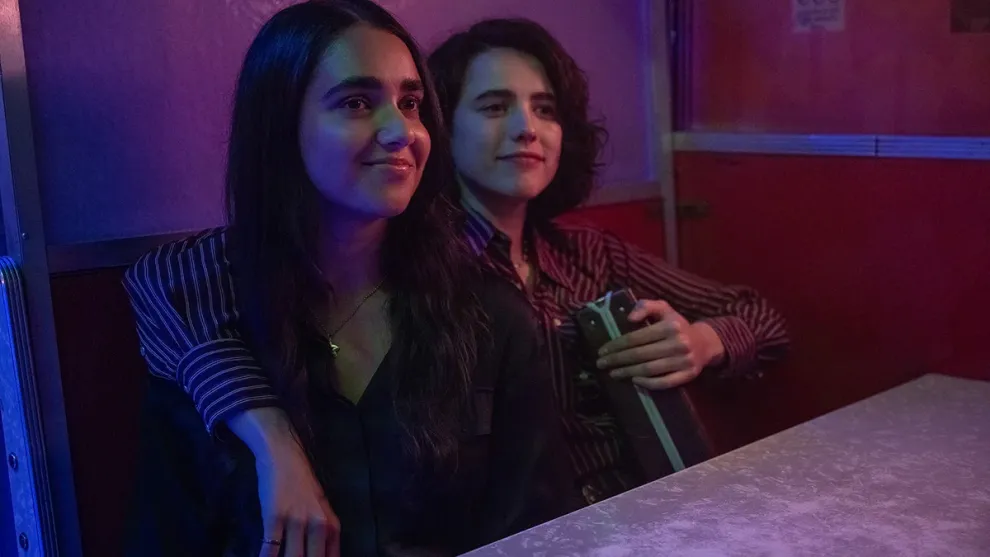How much do we need Will & Harper in 2024? In this dumpster-fire election year, can a charming road-trip buddy comedy – that just happens to be a documentary – save America?
Indulge me in a story. The first time I walked in a skirt from my office to the coffee shop down the street, I had to pass a body shop. An auto repair garage, not the cosmetics company.
I’ve made that walk hundreds of times, but never in an openly transfem presentation. Walking by in masc clothes, passing as a cis male, I had never given the garage a second thought. But I felt painfully self-conscious.
The thing is, halfway past the place, I realized that none of them even noticed me. They had work to do.
That’s the central theme of Will & Harper: we’re all just trying to live. And for the most part, unless somebody powerful stirs up anger for their own political benefit, nobody gives a shit how anybody else lives.
It’s a comforting vision of America. It’s not precisely a lie. And if every trans person had Will Ferrell running interference for them every day, it might be a little easier to navigate transphobic America.
But we don’t all have Will Ferrell in our life. What we do have is Will & Harper. And it does as much as a Netflix documentary can do.
What is Will & Harper About?
“Instead of an asshole, I’ll be a bitch.” That’s what Harper Steele tells longtime friend Will Ferrell, who wonders whether transitioning has changed Harper’s personality.
Before transitioning, Harper was a prickly, grumpy, and hilariously irascible character. She loved Natty Light, dive bars, and road trips. And by Will’s account, she was the funniest person he ever met.
When they were SNL freshmen, nearly 30 years ago, Harper was the only writer who saw Will’s potential and wrote characters that delivered on it.
So when Harper wrote her closest friends a letter coming out as trans in 2021, she offered to answer any questions they had about her life and experience. Will took her up on it with a 17-day road trip from New York to California in her classic Jeep Wagoneer. With a camera crew.
During that trip, he asks Harper just about every question a cis person could ask a trans person, from cringy to tender to ridiculous.
- About top surgery (Harper’s had it)
- About bottom surgery (thinking about it)
- About dysphoria and depression (yes, and Will’s heart breaks when he learns about the pain Harper kept hidden throughout their friendship)
- “Do you think you’re a worse driver as a female driver?” (Harper’s deadpan answer? “That’s the dumbest… That’s so… But I am.”)
And Harper answers them all in a way that shows how much she truly loves Will. “There are no ground rules with friends,” she says in the film; “I invite any friend of mine to ask these questions. I’m not afraid to talk about it.”
So yes, Harper does put herself in the position of “approachable trans person who happily answers cis people’s questions.” But she also doesn’t pretend to speak for all trans people. She is happily, if tentatively, being herself and speaking for herself.
Did Harper’s personality change with transition? She’s still a grump. But she’s a grump with perspective. And she’s putting the self-hatred behind her.
Is Will & Harper Worth Watching?
Will & Harper tugs the heartstrings and jerks the tears, and it comes by most of that honestly. But it’s hard to call it feel-good, especially since moments of brutal reality come crashing in at every turn.
Those are also the moments that make the doc a doc and not a road-trip slide show.
First of all, Will is fucking clueless about trans life in America, in ways that could get him and Harper killed if he weren’t a celebrity with a camera crew following him. More than once, Will apologizes (sincerely) for an uncomfortable or dangerous interaction that probably wouldn’t have even happened if he had not been there.
Sure, in one way Will is taking attention off Harper by being his famous self. But by attracting attention, he attracts attention to Harper.
The ultimate example is at a steakhouse in Texas. As Will takes on their 72oz steak challenge dressed as Sherlock Holmes, he and Harper find themselves in more of a “fishbowl” than even Will is comfortable with.
Will and Harper are quickly surrounded by gawkers with their phones. Alongside Will and Harper’s POV, the filmmakers show the results – viciously nasty, transphobic social media posts that could make any trans person afraid to ever leave home again.
But these moments occur across America. Will and Harper take in an Indiana Pacers’ game at the team’s invitation, where Harper admits to only ever getting into sports because she thought it would make her more manly.
At that game, the governor of Indiana, Eric Holcomb, enthusiastically takes a photo op with Will, who naively explains that he’s traveling the country with his trans friend. Later, Harper asks if Will thought to Google his new acquaintance. Will’s face drops when he learns that, just weeks before, Eric Holcomb signed several anti-trans bills into law.
Later, in an interview, Harper found a win in the situation: “He needed to take a picture with Will so bad that he dropped all of his principles.” But that’s putting a brave face on the situation. Holcomb didn’t abandon anything – his policies are still making life miserable for trans kids in Indiana.
The Heart of Will & Harper
Two scenes in particular stuck with me from the latter half of the film.
Will and Harper sit at the edge of the Grand Canyon, taking in the site that has symbolized America’s majesty and splendor for generations. There, they ask some other tourists to take a picture of them (“The Grand Canyon was in the picture?” Will asks).
One of the tourists, an older woman from Syracuse, NY, stops to talk, then delicately asks Harper, “I’m just wondering how early you knew?”
“I’m a retired therapist,” the woman says, and describes a patient from early in her career who dressed in his wife’s clothes. “I was very closed-minded about it,” she admits. “Sort of afraid to go into really unknown territory.”
“I had a therapist like that that sort of stopped me,” Harper says. “But I stopped myself enough that I don’t blame anyone.”
The therapist’s voice cracks as she says, “I know I was a blockade in that person’s life.”
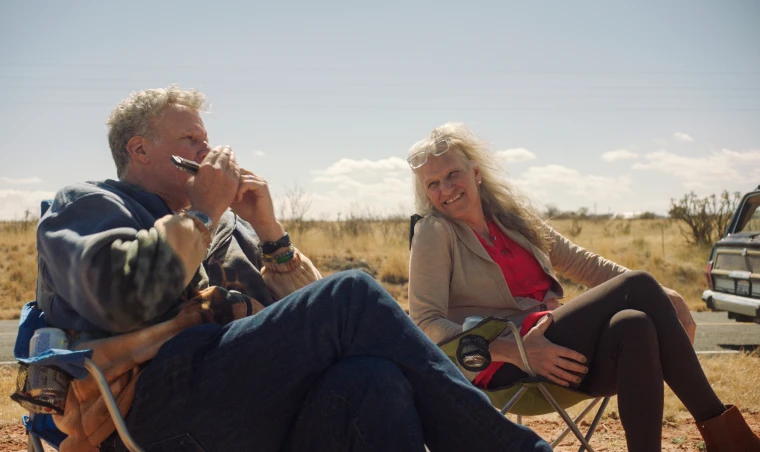
In another wrenching scene, Will and Harper travel to Mojave, CA, where Harper bought a run-down house in a “downtrodden” neighborhood for only $10,000 before coming out. There, she thought she would be free to live stealth as a woman without being bothered. “I was just looking for some place I could go and get away from people. I just hated myself so much.”
After a bit of sobbing, she says, “I’ll show you inside, and you’ll see how it got vandalized.” She and Will walk through the dark, dilapidated house. Everything inside is wrecked, with transphobic and homophobic graffiti on the walls.
That scene wrecked me. Harper never says exactly what happened, but she tells Will she’s done with the house and will probably give it away. It represents too dark of a time in her life.
“It’s just not the path,” Harper says. “It’s not the way to do it. You can’t hide. And I don’t wanna be afraid of people anymore. That’s just sad and terrible. And I get to be in the world.”
Is Will & Harper Good?
Is Will & Harper a perfect movie? No, of course not. Is it genuine and heartfelt? I have no doubt it is. Is Will Ferrell a sweet, loving supporter for his longtime friend? Absolutely.
Is it funny? If you think Will Ferrell is funny. I do think Will Ferrell is funny, and he’s right – Harper Steele is funnier.
But I can’t help but view Will & Harper through my own lens. And I can’t help but recognize that the places Harper loves, the places she wants to experience without fear of physical danger, are the kinds of places I’ve spent my life running away from.
Like that dive bar in Oklahoma. The kind of place Harper loved hanging out as she hitchhiked her way across the USA. A salt-of-the-earth, down-home kind of place. The kind of place with country music and Trump banners.
She has Will wait in the car, determined to go through this crucible herself. And after a little awkwardness, she finds her crowd. People misgender, then apologize. They toast Harper’s journey, literal and metaphorical (physical and metaphysical?). And eventually Harper calls Will in to celebrate.
During that scene, my partner said sarcastically, “Good for Harper.”
The cynic in us says that no matter how nice they are to Harper – even before her world-famous bestie shows up – those people are still going to vote Trump. They’re still going to vote for a governor like Eric Holcomb. They’re still going to vote for school board members who ban books and gender-neutral bathrooms.
At the very least, if they’re not voting for them, they’re not fighting them either. And we don’t need nice people. We need allies.
They can toast Harper’s authenticity all they like on Saturday night. The rest of the week, they’re tacitly supporting injustice.
Will and Harper – the people, not the movie – lobbied Netflix to get the film out before the election. “We wanted it to have enough runway for people to see it and hopefully start having important discussions in their living rooms,” Will said.
So when I say that Will & Harper does as much as a Netflix documentary can do, that’s what I mean. The right people might see it. The people who are receptive. People like Will, who just want to be good and do the right thing. People who ask in good faith how to support their trans loved ones.
But goddammit, they better go out and vote too. Because Harper can’t do a goodwill tour of every backwoods shitkicker bar in America, and she shouldn’t have to. Even if she’d love it.
Related:
